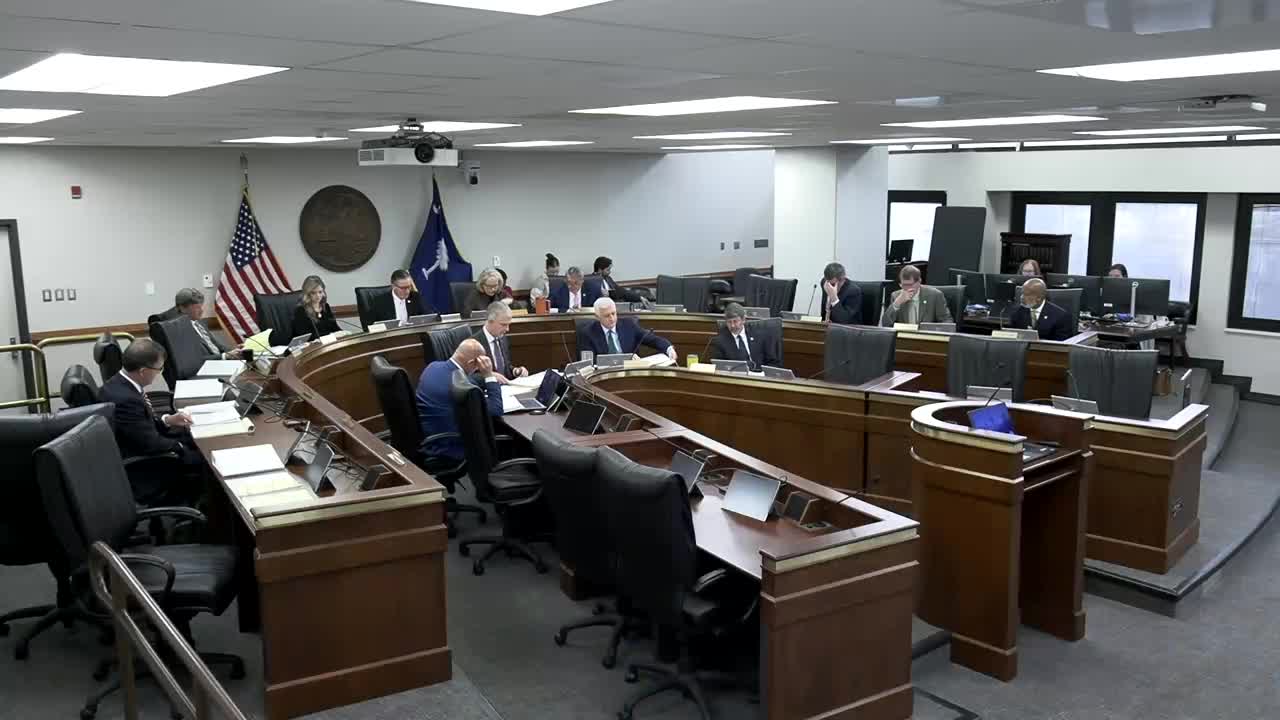Senate panel carries over bill tightening teacher-notice rules, creating sick‑leave bank and revising certification language

Summary
The Senate Education Committee carried over House Bill 3196 after members discussed new notification deadlines, a proposed monetary penalty for districts that miss statutory notification dates, a voluntary sick‑leave bank for school staff, and changes to retired‑educator certification rules.
The Senate Education Committee carried over House Bill 3196 after committee members debated requirements that would change how districts notify teachers of reemployment, create a district sick‑leave bank, and alter retired‑educator certification rules.
The bill would require written reemployment notices to include a projected minimum salary schedule and a teacher’s tentative assignment at least 14 calendar days before students return to school. It would let certified and noncertified school employees donate unused sick or annual leave in excess of 60 days to a districtwide sick‑leave bank. The measure also would convert the retired educator certificate from a renewable credential to a lifetime credential with a five‑year maintenance request provision; the subcommittee amendment reinserted language excluding applicants with a prior suspension or voluntarily surrendered certificate.
Donna Barton, research director, summarized the measure to the panel: “This bill authorizes the department in collaboration with the EOC to use data already available [to] report on the in‑state and out‑of‑state college enrollment,” and she outlined the sick‑leave bank and notice provisions. Barton also described the subcommittee amendments that provide an exemption for districts that already have a leave policy in place and that clarify pay‑category factors upon request.
Committee members spent the bulk of debate on the provision that would create a penalty for districts that fail to meet the current May 1 statutory notification deadline. One senator described the policy shift from automatic reemployment as a substantive change and questioned whether a fine—described at different points in the discussion as “a thousand dollar penalty” and later referenced in committee discussion as a much larger per‑occurrence amount—was the right lever. The senator who proposed a monetary penalty said the purpose was to replace a passive renewal system with an incentive for districts to actively evaluate staffing decisions: “The most important thing the district office will do in a school year is hire their employees,” he said, and asserted a penalty would “give a district a hundred thousand reasons to be more engaged.”
Committee members also raised questions about whether the written‑notice requirement would apply to administrators; staff and the bill’s proponents indicated the section was intended to cover teachers as defined in statute. Members asked staff to clarify the definition and to consider phasing any penalty in so districts could adapt their processes. The committee chair recommended further drafting with staff and proposed carrying the bill to allow time for those edits.
Senator Turner, subcommittee chair, and other members moved to carry the bill over for two weeks of staff work; the committee approved the motion by voice vote and took no further action on final passage.
The committee flagged a set of technical clarifications—residency‑proof factors tied to tax returns, exact penalty language and phase‑in timing, and whether particular administrative employees are covered—that staff will revise before the measure returns to committee.

